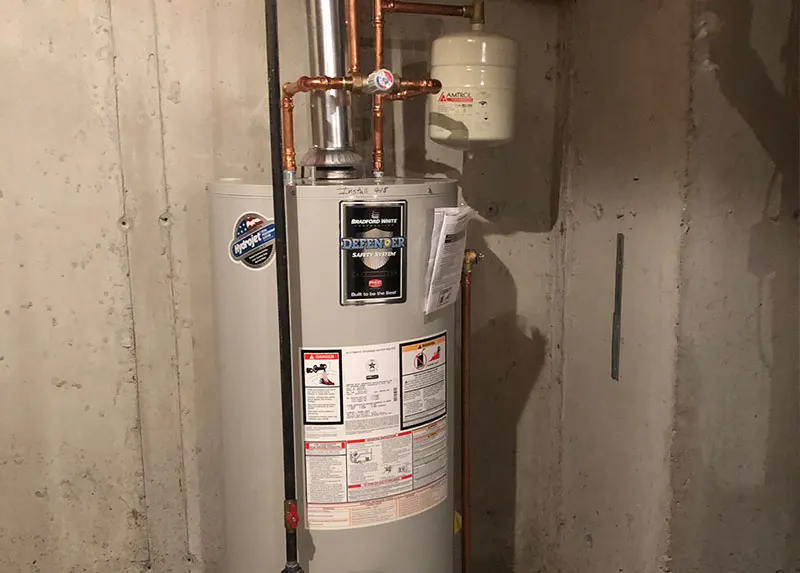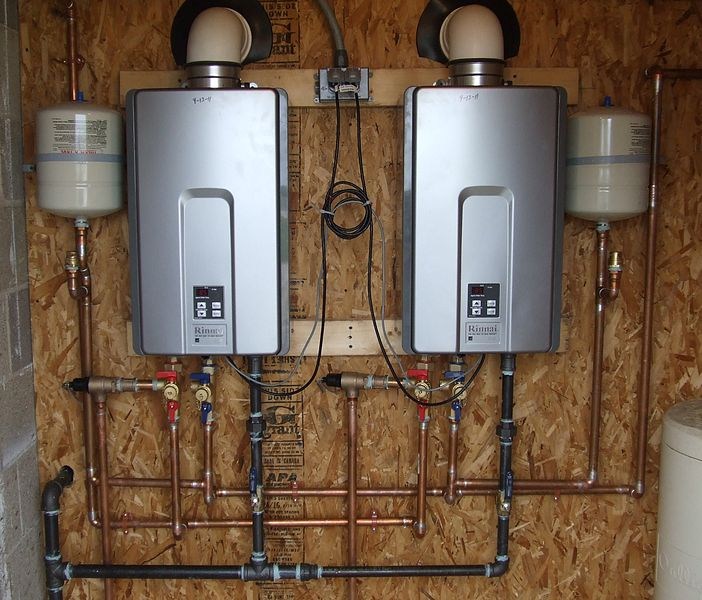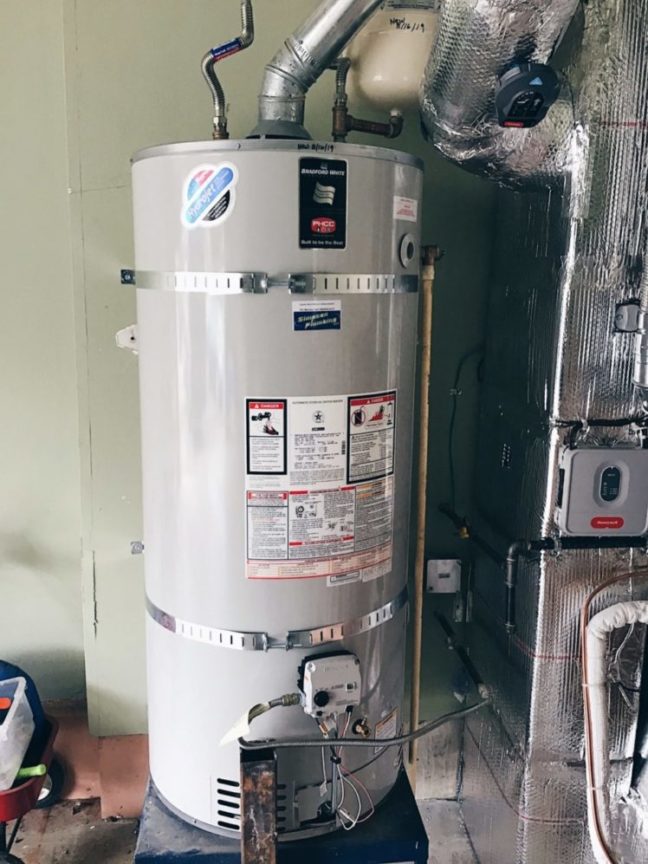Fast and Reliable Pipe Repair to Fix Leaks and Restore Functionality
Fast and Reliable Pipe Repair to Fix Leaks and Restore Functionality
Blog Article
Complete Guide to Water Heating UnitSetup and Replacement
Comprehending the ins and outs of water heater setup and replacement is important for house owners seeking to make certain effectiveness and reliability in their hot water supply. From selecting the suitable type and dimension to carrying out a seamless installation procedure, several factors must be considered to prevent common mistakes. This overview will certainly give you with the required steps and understandings to navigate the intricacies of this home renovation task, while additionally stressing crucial upkeep techniques that can lengthen the life of your system. As you explore these facets, you might discover on your own reassessing your existing setup and recognizing locations for improvement.
Sorts Of Water Heating Systems
When considering water heater installation and substitute, it is vital to understand the different kinds of hot water heater available out there. The most usual kinds consist of tank water heaters, tankless hot water heater, heatpump hot water heater, and solar water heating systems.
Tank water heaters are conventional systems that store a specific volume of warm water, making them readily offered when required. They are generally less costly in advance yet might incur greater energy costs gradually due to warmth loss. On the other hand, tankless water heating systems offer warm water on demand, removing the demand for storage. They are energy effective and can conserve room, however their first expenses are usually greater.
Heatpump water heating units make use of electrical power to transfer heat from the air or ground to heat water, supplying considerable energy savings but calling for even more space and certain setup conditions. Last but not least, solar water heating units harness solar power to heat water, supplying an environmentally friendly alternative with potential long-lasting cost financial savings, although they usually require a back-up system for gloomy days.
Understanding these alternatives guarantees educated choices concerning installment and replacement, catering to certain demands and preferences.
Picking the Right Dimension
Picking the ideal size for a hot water heater is vital to make certain optimum efficiency and efficiency. An unit that is as well small will certainly struggle to fulfill home demands, bring about inconsistent warm water accessibility and enhanced power intake. Conversely, an extra-large hot water heater can cause unneeded energy waste and greater energy bills.
To establish the right dimension, think about the home's top warm water use. This can be calculated based on the number of passengers and their common warm water needs. A household of 4 might call for a water heater with a capacity of 50 to 80 gallons, depending on the usage patterns, such as synchronised showers and laundry.
Furthermore, examine the recovery price, which gauges how swiftly a heating system can restore warm water after it has actually been utilized. For tankless models, concentrate on the flow price, measured in gallons per minute (GPM), to ensure it meets the house's simultaneous demand.

Installation Refine Summary

Next, the old system has to be detached and gotten rid of, taking care to follow neighborhood codes and laws pertaining to disposal. When the old unit is out, the brand-new water heating unit can be placed in position. This action involves connecting the water system lines, making sure that all fittings are protected and leak-free.
After developing water links, it's necessary to connect the power supply, whether electric or gas, adhering to the producer's guidelines meticulously. When all connections are made, the system needs to be loaded with water, and the power can be transformed back on. Lastly, it's vital to look for leakages and guarantee the water heating system is working correctly prior to finishing the installation process.
Common Installment Blunders

One more constant mistake is disregarding to follow regional codes and policies. Failing to comply with these criteria can not only bring about security threats yet may also cause costly fines or the need for costly reinstallation. In addition, improper weblink venting is a critical concern. Poor air flow can trigger hazardous gas build-up, posing serious wellness dangers.
Falling short to secure links or making use of the incorrect kind of installations can lead to leakages and water damages. By avoiding these common installation mistakes, house owners can guarantee their water heating unit operates securely and successfully, making the most of performance and durability.
Upkeep Tips for Longevity
Correct upkeep of a water heating unit is vital for its long life and ideal performance. Regular evaluations and maintenance can avoid costly fixings and expand the home appliance's life-span. Begin by examining the temperature setup; it ought to commonly be established in between 120 ° F and 140 ° F for ideal energy effectiveness and safety and security.
Every six months, flush the storage tank to get rid of debris build-up, which can hinder home heating efficiency and cause rust. To do this, transform off the heater, link a hose to the drain valve, and allow the water run until it is clear.
Anode poles must be examined yearly and changed when they are rusted. These poles aid prevent tank deterioration by drawing in destructive components in the water.
In addition, inspect the stress safety valve routinely to ensure it is operating properly. This shutoff is essential for preventing too much stress build-up within the container.
Lastly, take into consideration setting up a professional maintenance check every couple of years for comprehensive examinations and maintenance. By sticking to these upkeep tips, home owners can dramatically enhance the efficiency, safety, and life-span of their hot water heater, guaranteeing trustworthy warm water for several years ahead.
Conclusion
In final thought, appropriate installment and maintenance of water heating systems are critical for guaranteeing performance and longevity. By comprehending these essential elements, homeowners can attain a reliable warm water supply while reducing prospective concerns associated to water heating unit procedure.
Understanding the intricacies of water heating system installation and replacement is vital for house owners seeking to make sure efficiency and reliability in their hot water supply.Storage tank water heaters are typical systems that Check This Out keep a specific quantity of warm go to website water, making them conveniently offered when required. In contrast, tankless water heating units give warm water on demand, getting rid of the need for storage space. Choosing a water heater that is either too tiny or also large can lead to inefficiencies, resulting in poor warm water supply or extreme power consumption.
By understanding these essential elements, house owners can accomplish a trusted warm water supply while reducing prospective problems associated to water heating system operation. drain cleaning.
Report this page